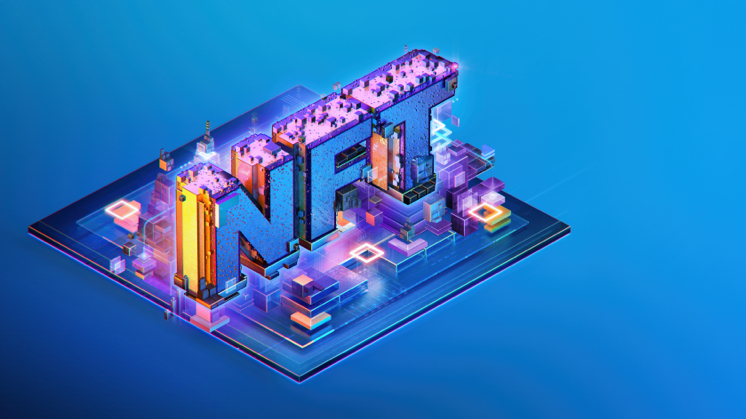NFTs are digital tokens that can be used to prove ownership of digital art. Although they’re gaining popularity, they have some challenges that arise when it comes to recognizing and selling these assets. Questions like who has the right to “mint” and sell NFTs based on existing properties are rising.
What is a Non-Fungible Token (NFT)?
This technology allows the tracking of ownership and transactions of each NFT. Its unique characteristics make it a non-fungible asset. NFTs are non-fungible, with each token assigned a token ID and distinctive metadata associated with it. It can be seen as a certificate of ownership linked to intangible digital assets such as digital art or media, but also real-world physical assets as well.
How far is the creation and trading of NFTs covered by existing IP law?
While Blockchain technology is rapidly growing, the underlying intellectual property (IP) rights associated with NFTs can be associated with existing IP legal frameworks. For example, Section 106 of the US Copyright Act provides copyright owners with exclusive rights to reproduce, display, copy, prepare derivative works and distribute copies of the underlying work. NFTs have two components: the ownership of the NFT itself and the ownership of the IP rights to the content linked to the NFT. For NFTs that may contain unauthorized elements in the underlying media.
One of the challenges will be how the traditional IP rights are defined in relation to NFTs and who has the right to create or mint NFTs containing such IP.
What are the legal issues to the creation and ownership of NFTs?
IP rights holders should go through a legal analysis to make sure that all associated rights are clear before moving forward with minting and selling NFTs. In case an artist created an original work of art, the analysis is straightforward. However, if the underlying asset is comprised of many different rights contractually acquired, such as a video scene from a feature film, the analysis must take into account all the various rights included in the video scene. Rights of publicity as well as moral rights of authors are also legal considerations that should be made depending on the content of the NFT.
It is very important to make sure of the NFT sale and incentive structure. It should not be deemed unlicensed security. Generally, if the NFT features completed artwork and its value are inherent in the completed work, this should not be considered a security under US law. If the NFT is marketed as an investment opportunity or is incomplete, this could be deemed a security and subject to US securities laws.
Who owns the IP rights of a piece of art or other content attached to an NFT and what proprietary rights are transferred upon a sale of an NFT?
Typically for NFTs associated with art or media, the author of the original IP retains the underlying copyright and the NFT holder only owns the digital representation linked with the NFT along with personal rights to display the media. Just like when a buyer owns a physical art piece they bought, the buyer may present the physical work, but does not have the right to reproduce it or make derivatives as if they created the work. The terms of the license that comes with the sale of the NFT specify what IP rights the purchaser has.
To what extent are NFTs susceptible to “COPYFRAUD” or “COPYCATS”?
The enforcement of IP rights is inevitable and will be shaped more and more by future legal challenges.
To note that OpenSea’s terms and conditions (the largest NFT marketplace platform), make it clear that despite the official-looking checkmarks, it does not verify the identity, legitimacy, or authenticity of any NFT sold on its platform. It appears that courts will need to step in to settle many of these IP disputes that are already present. However, issues from proper jurisdiction to identifying the responsible party may present obstacles for formal legal claims.
A growing trend in the NFT space is the emergence of decentralized autonomous organizations (DAOs). DAOs are online communities that share a bank account (through an electronic wallet) and allow community members to govern and pool their resources together towards a common purpose. DAOs have sprung up to collectively buy high-priced NFTs or to fractionalize ownership of NFTs, ranging from digital assets to real-world assets.
These growing community models will influence businesses dealing with intellectual property rights and the traditional corporate structure, but may also draw scrutiny from securities regulators.
If you are interested in learning more about NFT License Agreements or require legal assistance in connection with preparing your customized NFT license agreement, feel free to reach out to us and our expert attorneys will contact you in no time!
Note that the information mentioned in this article is not a substitute for obtaining legal advice from an attorney. Each situation is unique, and you should not act or rely on any information contained herein without seeking the advice of an experienced attorney.
Legally Yours,







